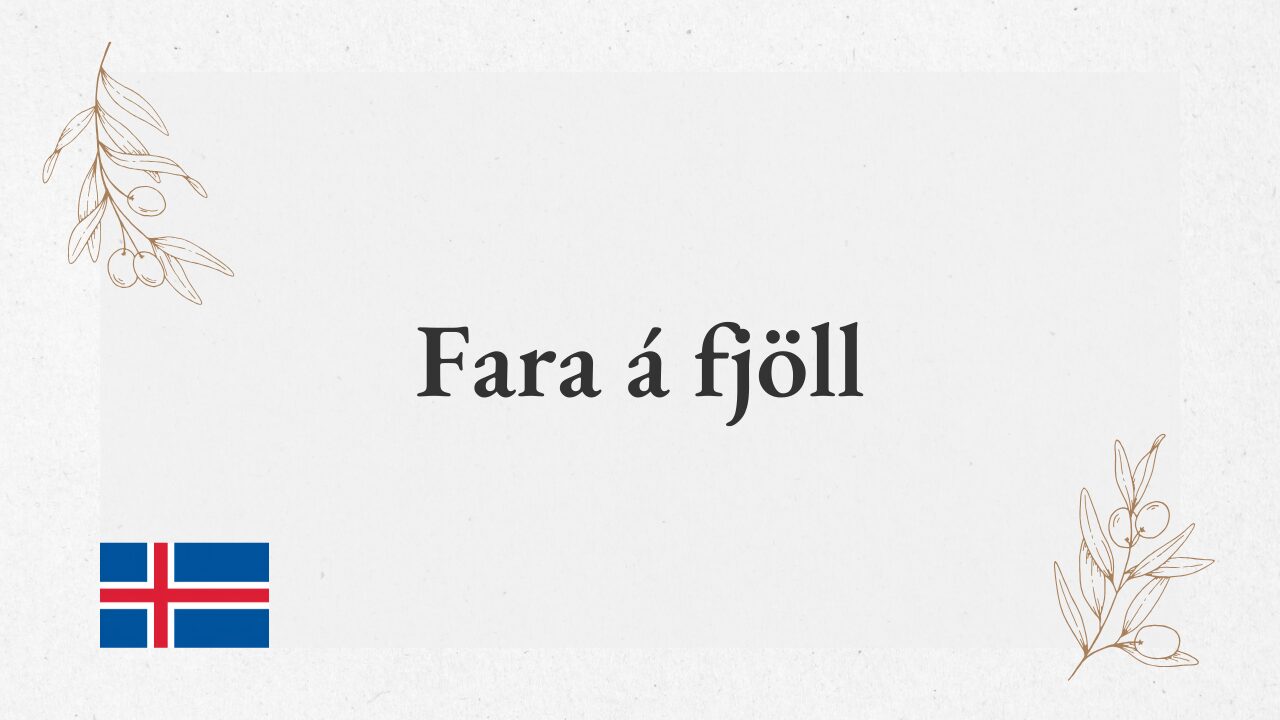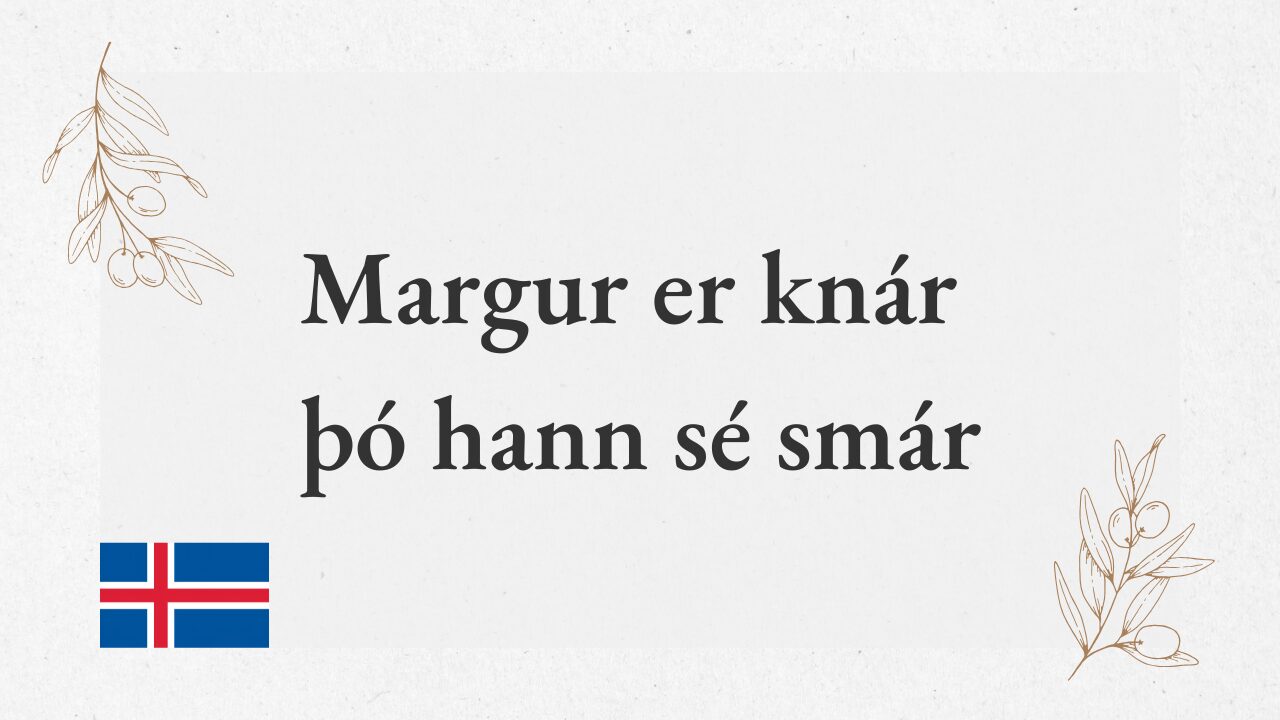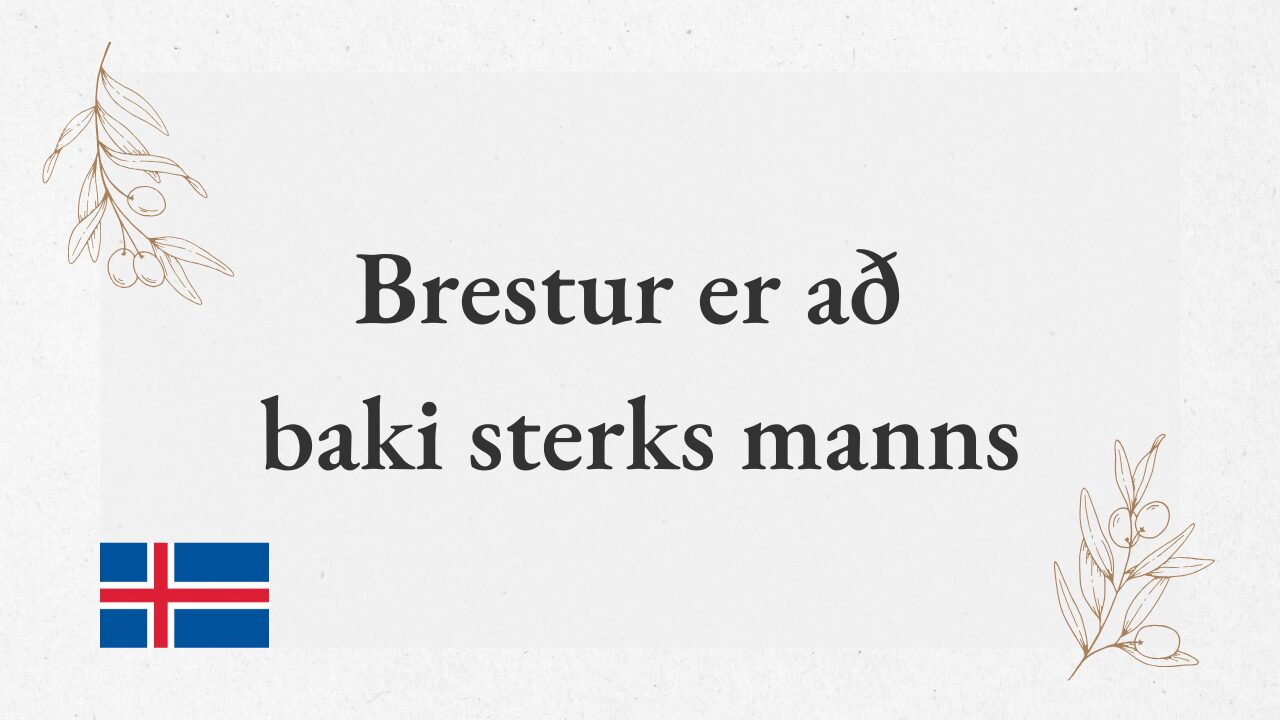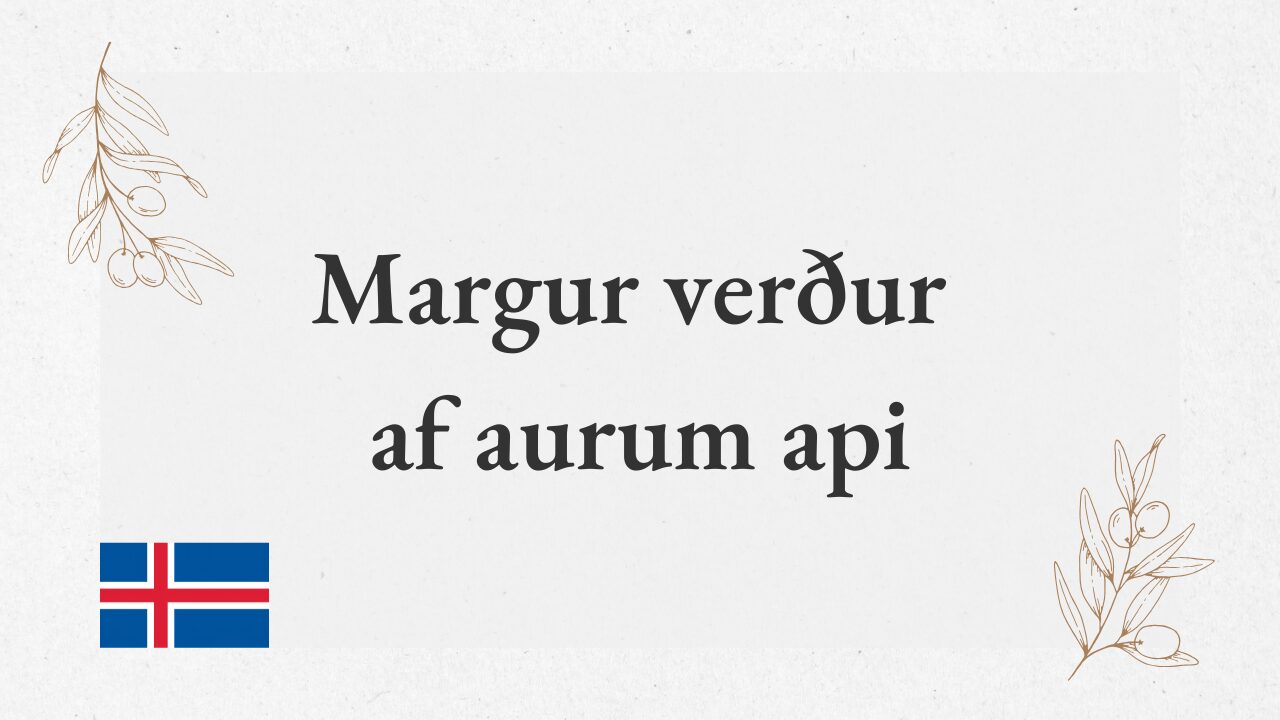“Fara á fjöll” – To go to the mountains

Meaning
“Fara á fjöll” literally translates to “to go to the mountains,” but in practice, it means “to escape from a problem” or “to avoid responsibility” in Icelandic. This phrase refers to the attitude of avoiding facing a difficult situation or problem directly and instead opting for an escape. It is a critical expression used when someone adopts a passive or evasive approach rather than actively dealing with a challenge.
In Japanese, this expression is similar to “escaping from reality,” and in English, it resembles “to bury one’s head in the sand” or “to run away from responsibility.”
Origin
“Fara á fjöll” has roots in Iceland’s unique natural environment and way of life. Iceland is known for its rugged mountains and harsh natural conditions, and in the past, people would escape into the mountains to avoid danger or flee from being pursued.
However, in modern society, this kind of behavior is seen as a passive attitude of avoiding problems rather than confronting them. The mountains are viewed as a safe place, but at the same time, they offer isolation, cutting off contact with the outside world.
Over time, the act of retreating to the mountains has come to symbolize “escaping from responsibility,” giving the phrase a negative connotation.
Usage
“Fara á fjöll” is commonly used to describe people in work or daily life who try to avoid difficult or unpleasant situations. For example, it can be used when someone leaves a problem unresolved or tries to escape from a situation where they should be taking responsibility. This expression is often used with a tone of irony or criticism.
Conclusion
“Fara á fjöll” is an Icelandic expression meaning “to escape from a problem” or “to avoid responsibility.” Originally referring to the act of seeking refuge in the mountains to avoid danger in the natural world, it has evolved into a term that criticizes the avoidance of difficult situations or responsibilities in modern life.




